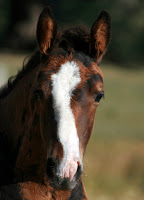For this New Year's celebration, I had a simple task: To prepare the perfect Martini. Not one of the many impostor drinks that have posed as "martinis" over decades past - but a true, traditional one. I enjoy the art of making drinks properly, and what better time to practice this than on New Year's Eve?
At the heart of a real Martini is elegant simplicity. Sugary syrups and exotic garnishes have their place, but that place is elsewhere. Neither does Vodka belong in this most classic of cocktails. A traditional Martini is gin and vermouth in just the right combination - swirled delicately over ice, strained into a classic cocktail glass, and garnished with three olives. And that is all.
But the minimalist recipe is not free of ambiguity. Even among the purists, debates rage regarding which brands of gin and vermouth are best, and what proportions are ideal. After much soul-searching, I opted for Hendrick's and Noilly Prat, at a 4:1 gin to vermouth ratio. And I found traditionally cured Perugia olives - with nothing stuffed inside and no vinegar used in preparing them.
Perfect! But, not so fast... No sooner had I happily surveyed my ingredients, than my friend - an Edwardian history specialist - informed me that I was doing it all wrong. I was fixing to create a 1920s version of the drink, whereas the "real" original is from the early 1900s and requires a different approach entirely. Furthermore, I should not be calling it "the perfect Martini" as it creates confusion with the "Perfect Martini" - which is a separate version of the drink altogether. Ah, academics... How we love to get it just right and spoil all the fun!
Well, I am sticking with my original plan - I've grown emotionally attached to the idea of making it this way. And besides, who is to say that the very first iteration is the "perfect" version of the drink? Maybe the 1920s Martini is considered classic for a reason!
There is really no such thing as a perfect anything, just our personal version of it. It's the version that we will have the most fun with, the version that happens to be just right for us - even if it's not what others consider perfect or correct. Here's wishing you all a beautiful New Year full of such experiences - on the bicycle and otherwise.
At the heart of a real Martini is elegant simplicity. Sugary syrups and exotic garnishes have their place, but that place is elsewhere. Neither does Vodka belong in this most classic of cocktails. A traditional Martini is gin and vermouth in just the right combination - swirled delicately over ice, strained into a classic cocktail glass, and garnished with three olives. And that is all.
But the minimalist recipe is not free of ambiguity. Even among the purists, debates rage regarding which brands of gin and vermouth are best, and what proportions are ideal. After much soul-searching, I opted for Hendrick's and Noilly Prat, at a 4:1 gin to vermouth ratio. And I found traditionally cured Perugia olives - with nothing stuffed inside and no vinegar used in preparing them.
Perfect! But, not so fast... No sooner had I happily surveyed my ingredients, than my friend - an Edwardian history specialist - informed me that I was doing it all wrong. I was fixing to create a 1920s version of the drink, whereas the "real" original is from the early 1900s and requires a different approach entirely. Furthermore, I should not be calling it "the perfect Martini" as it creates confusion with the "Perfect Martini" - which is a separate version of the drink altogether. Ah, academics... How we love to get it just right and spoil all the fun!
Well, I am sticking with my original plan - I've grown emotionally attached to the idea of making it this way. And besides, who is to say that the very first iteration is the "perfect" version of the drink? Maybe the 1920s Martini is considered classic for a reason!
There is really no such thing as a perfect anything, just our personal version of it. It's the version that we will have the most fun with, the version that happens to be just right for us - even if it's not what others consider perfect or correct. Here's wishing you all a beautiful New Year full of such experiences - on the bicycle and otherwise.

















